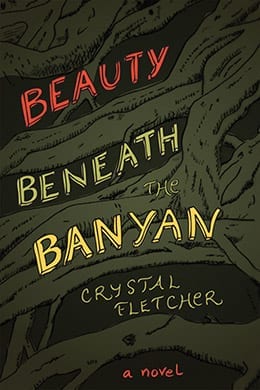Like the many surfaces of a gemstone, the varied aspects of human experience link the short stories in this collection, titled Aspects of Nature. Themes of finding one’s identity; conflicts of family, career and romance; loneliness, death, loss, and feelings of displacement; youth and aging; courage and fear; human frailty; spirituality; compassion and manifestations of evil, all are at the heart of this collection. Of the eleven stories, the one bearing the collection’s name presents a satirical microcosm of our fragmented contemporary society, a candle-lit dinner party of six disparate guests at a Canadian cottage on an isolated island in the middle of a lake at the height of a Gothic storm. The remaining stories show aspects of nature in their diverse guises: a brilliant concert pianist courageously asserts life over evil; in a satirical affirmation of self, a middle-aged woman confronts a plastic surgeon urging a face lift; an elderly woman, trapped in her role as a mother and grandmother, offers an amusing, account of her inability to assert to her family what it is she desires; a seventy-year-old woman on her death bed makes plans for her next dinner party; a Holocaust survivor fashions random natural objects into sculptures, determined to impose order out of chaos; a forty-something woman finally confronts her doctor and, by extension, the male medical profession; an aging woman laments her loss of memory, her home, independence, youth, beauty; another, faces societal changes she no longer understands; a young pianist is conflicted by love for her master teacher; a young mother, forever explaining her husband and sons each to the other, seeks to fathom where her own self has disappeared.
“These stories show a rare and sympathetic nature at work. Each carves its own world in language, the mordant humour omnipresent but never intrusive, the dialogue at times pitch perfect (a rare gift). The stories are memorable for the insights, images, beauty that they capture and convey in words. These are infinitely human stories (death is never very far from any of the character’s thoughts) with perhaps memory, mutability, mortality, the most central of their concerns. With the publication of this book, Canadian literature gains a fresh, new voice, a voice to be listened to and praised. Bravo, as they say in that art of all arts.”
—Matthew Corrigan, Senior Scholar, Professor Emeritus, Humanities and Creative Writing, York University
“These stories are a treat: by turns tart and sweet, they investigate with a trenchant eye the landscapes of memory and of loss and the eternal quest for identity.”
—Rick Archbold, writer
“I have been immensely impressed with the intelligence and subtlety of Rhoda’s work. I do urge that it be given a serious reading. I can guarantee it will be worth your while.”
—Janette Turner Hospital








inannaadmin –
Established Fiction
Aspects of Nature by Rhoda Rabinowitz Green
reviewed by David Staines
University of Toronto Quarterly Volume 87 Issue 3, Summer 2018
https://utpjournals.press/doi/10.3138/utq.87.3.omnibus.en.2
Finally, attention should be paid to Toronto’s Inanna Publications in the realm of the novel. Although their books are not yet major works, Inanna’s commitment to quality reveals fiction that is highly individual and worth reading…
The final book from Inanna Publications is Rhoda Rabinowitz Green’s Aspects of Nature, a collection of short stories ranging from 1993 to the present in their publication dates. Of the first three stories centring on music, the third one, ‘‘Finding Maryan,’’ focuses on Maryan Filar, a Nazi musician who came to Philadelphia in the 1950s; the young girl who studied with him recounts the taut dramatic story. ‘‘This is his story then, one he has kept dormant for half a century, memories too sickening to awaken,’’ she observes. ‘‘It is a story of courage, wit, fear and faith; love and loss, survival and triumph, a plague of endurance most of us can’t imagine.’’ Many of the remaining stories concern the process of aging, of growing old and facing death. For example, in ‘‘What’s Going On Here, Anyway?’’ Leon sits beside his dying wife and observes the final moments of her life. In ‘‘Shayndeleh,’’ Jeanne lives in a seniors home, and as she looks back in time, she recalls her own life, which was once full of family, friends, and neighbours but is now reduced to one shared room. Aspects of Nature is a most interesting and dramatic collection, and Inanna Publications deserves a strong readership.
——–
Aspects of Nature by Rhoda Rabinowitz Green
reviewed by Lynn in the Passionate Playgoer
Transmission Magazine – October 17, 2017
http://slotkinletter.com/
In Aspects of Nature Rhoda Rabinowitz Green has written eleven exquisite short stories that take us into the worlds of music, memory, survival, aging gracefully and sometimes kicking and screaming with full fury. She writes with compassion and sensitivity of the minutiae of being a woman in today’s world which sometimes might be a world that is passing by. Every woman will understand. Every man will be enlightened. And in a few cases you will be justifiably infuriated.
Rhoda Rabinowitz Green studied music seriously in university, particularly piano, perhaps towards having a concert career. In “The Wind at Her Back” she writes of Miriam who is preparing for two major concerts and her celebrated teacher, Ari Zachar, who is coaching her. Green writes with an insider’s focus about phrasing, pacing, holding back the emotion until the payoff, but her writing does not exclude the reader who is not immersed in the world of music.
In the case of Miriam’s teacher, Green also illuminates the solitary, single-minded life a concert pianist must live in order to succeed. If Miriam mused on having a more personal relationship with Ari, it was not shared with Ari. He knew what he had to do to maintain his high level of expertise and his reputation and that left no room for anyone in his life but himself.
“Finding Maryan” is the longest story in this collection and perhaps the most personal for Rhoda Rabinowitz Green. While I’m sure all the stories are personal, Green puts herself in this one as a witness, recorder and keeper of a memory.
Maryan Filar was a noted, gifted concert pianist and teacher. His reputation as a master was legendary. Rhoda Rabinowitz Green was one of his students and writes beautifully of a how this gifted teacher affected her: “For me, he was a figure of strength, a creator of Beauty. You will understand, then, that it was the music and the man I came to revere and love.” We have all had teachers like that. Rhoda Rabinowitz Green describes it perfectly.
Green writes of Filar’s life growing up in a comfortable home in Warsaw, Poland; loved and cherished by his family, encouraged in his musical gifts. He flourished in music. She describes how he played the “Black Key Etude” by Chopin: “…his fingers butterflies flitting quick and light over the keys.” A stunning image in a book full of them. Filar was diligent and devoted to his art. Life was sweet. And then the Nazis invaded Poland and that lovely world was shattered. Filar wrote a book: From Buchenwald to Carnegie Hall which says everything in five simple, stunning words. Green writes that Filar kept his secrets about that time in the concentration camps but eventually the memories and facts came out in a torrent. Green captures the determination and urgency that Filar had to regain his abilities to play the piano once he was a free man.
When he was an old man in a nursing home, Green visited him and they reminisced. Filar had a life full of memories and now his memory was broken, fading, lost. Green in a sense became his memory, that’s how devoted she was to him.
Rhoda Rabinowitz Green writes of single-minded men devoted to their musical careers and to creating their art. She also writes of devoted, accommodating, trusting women who often have to put their own dreams on hold, or have to trust men to do right by them, and find this doesn’t always work to their advantage.
In “You Make Your Decision” Green writes about Jenny who was devoted to her music and wanted a career. But she’s not able to pursue that career because of her ambitious husband whose career comes first. He gives lip service to Jenny saying she can get a piano and join various musical groups where her husband’s next promotion will take them. The dutiful wife. The hard-working husband who knows the right buzz-words to use, “I already told you how important it (the promotion) is to me….Jenny nods; it says I know, I know. This is what happens after their discussions, more like persuasions; she sees the logic of the situation and calms down, but her insides begin to churn just thinking about giving up the Lawrence Park house.” It’s a story that evolves slowly, gracefully but with those jarring bits as Jenny tries to look on the bright side of situations that are far from bright. I hold tightly to the book as I quickly turn the pages. Are my insides churning in understanding and compassion just a touch, for Jenny?
Rhoda Rabinowitz Green writes so vividly in “Dear Doctor” of a situation we all have experienced—the doctor, too busy to deal with his worried patient and the patient, Rose Enfield, who feels embarrassed because she doesn’t want “To bother the doctor” with her concerns. There is a receptionist named Joy (“So earnestly joyless!) and his “crisp nurse.” The doctor was supposed to do another mammogram and seems to have forgotten and now Rose needs someone to tell her what is happening. She is told by the “joyless Joy” that Rose will have to speak directly to the doctor and that will take time. Rose has copious notes to help her should she be lucky enough to speak to the doctor, notes for reference, to give her confidence, to help her state her case. But if the doctor doesn’t speak with her, what can she do? She can write him a letter setting out all her concerns, frustrations and anger.
It is a masterful letter, full of wit, irony, full-throttled fury couched in nuance and sarcasm. Rose is most confident when writing. Green takes on the medical profession here. There is the busy, all-knowing doctor who has to deal with the troublesome patient who reminds him he didn’t do something important that might affect her life. Green lays out Rose’s concerns, her recollections of what happened or not, who said what and how it was phrased and how she feels she has been treated. The details weave and knit into themselves; the writing lulls you into a situation that we all recognize—those churned insides again. I’m holding the book a bit tighter here, but silently cheering the fearless Rose by the end of the story.
Rose Enfield is also the ‘star’ of Age Appropriate. In this one Rose writes another letter to another doctor, a plastic surgeon in this case, explaining a decision she made. She had noticed signs of her aging: lines on her face, sagging skin here, a droop there. She thought a bit of a nip and tuck might be in order. Doctor Tucker (is there a sly pun there, Ms Green?) says that it’s not that simple. Rose has to consider the whole package that this can’t be done piece-meal.
Here Rhoda Rabinowitz Green’s laser-sharp observations are withering. There is the snotty comment by the nurse: “Don’t worry, dear, you can be repaired.” Or when Rose expresses concern about the extensiveness of the procedure the doctor queries: “Don’t you want to look your very best for your husband.” (I’m gritting my teeth and exhaling slowly). Green muses on relationships, beauty, the tyranny of wanting to look younger, those damned wrinkles. (When George Bernard Shaw was writing about the aged, brilliant Italian actress Duse, he said her wrinkles “were the credentials of her humanity.”) How Rose reasons out her decision is a thing of beauty.
In Aspects of Nature there are also stories about aging, old age, loosing ones independence but establishing a smaller more focused world, and stories about adult children and their relationships to their aging parents and vice versa. Rhoda Rabinowitz Green has a wonderful, robust sense of language, description, how to express the most complex of emotions and make it all seem effortless. You are so aware you are reading the words of a gifted writer because she takes you deep into the lives of the people in her stories.
No less a personage than Janette Turner Hospital has said of Rhoda Rabinowitz Green’s work: “I have been immensely impressed with the intelligence and subtlety of Rhoda’s work. I do urge that it be given serious reading. I can guarantee it will be worth the while.”
I totally agree. I can hardly wait to read Rhoda Rabinowitz Green’s next book.
——–
Aspects of Nature by Rhoda Rabinowitz Green
reviewed by The Miramichi Reader – August 29, 2016
http://miramichireader.ca/2016/08/aspects-nature-review/
Short story collections are always a delight for me to read. I say that because you never know what you might get: will all the stories be good ones? Will there be some stinkers in the mix? Or are these just a collection thrown together by the publisher? With Aspects of Nature (2016, Inanna Publications) you’ll get eleven well-written stories. However, I especially enjoyed the several ones relating to the issues of growing older and the challenges of the elderly.
The first three stories are set against the background of the author’s training as a classical pianist. In the end note of “The Wind at Her Back” the author tells us that the fictionalized character of Ari, pianist and master teacher, is a composite of two influential professors of piano, one of which is the subject of the second story, “Finding Maryan” which, in my opinion, is one of the best stories in this collection. It is a brief (only 34 pages) biographical sketch of pianist and holocaust survivor Maryan Filar but is the most fascinating, (since the author knew the man) serious and deeply moving story to be found in Aspects of Nature. Really, the subject is worthy of a full biography and Ms. Rabinowitz Green should be the one to write it. The story certainly left me wanting to know more about the man.
As I mentioned earlier, the stories about aging and the challenges of growing old, facing death, are where Ms. Rabinowitz Green’s writing strengths lie. In “What’s Going on Here, Anyway?” Leon sits on a death watch at his wife’s bedside:
“Everything about his wife’s surroundings belied the horror of her state: crisp ironed sheets, lacy pillow-slips, eyelet duvet, the honeyed fruitwood four-poster in which she rested; on the dresser, Venetian-crystal miniature perfume bottles, wine and raspberry, dusty rose and trillium blue; chintz flower-printed chair in which Leon sat watching Shirley. She lay propped against pillows, looking straight ahead, neither to one side or the other, her eyes uncannily deep and dark and brooding, vacuous, except for rare moments when she laughed at something funny.”
What is fascinating bout this six page story is the way the author makes you feel the claustrophobia of the bedroom, the stilted, repetitive conversations and the gloomy, unchanging environment with little in the way of distraction for those keeping the deathwatch.
Two other stories, “Shayndeleh” and “Shayndeleh’s Real Estate” are centred on Jeanne (whose nickname is Shayndeleh, meaning the “pretty one”) an inhabitant of a senior’s home who likes to watch Queenie, the beautiful goldfish swimming around the castle in the fish tank. Jeanne’s situation is captured beautifully by the author, recalling a life full of love, friends, family, houses and neighbours, and now reduced to one room (shared, at that); her personal possessions carried in a plastic toiletry purse on her lap which she regularly inventories.
“There’s only the distant past, no now now. Only a field of greyheads- that’s what she calls them – women mostly, asleep in wheelchairs, their chins dropped to their chests, their shoulders sagging, listless.
It is sad, but a reminder of our own lives, the brevity of which will soon find us older, senior citizens dependent on younger relatives, and in failing health which ultimately relegates us to live within a system with other comparable cases, reduced to a room with little more than a bed, chair and table.
While the tenor of Aspects of Nature is one of gravity and solemnity, there are lighter moments to be found, such as in her letters to her doctor: “Dear Doctor” and “Age Appropriate”.
I truly enjoyed Aspects of Nature, and I would definitely be interested in reading more of Ms. Rabinowitz Green’s writings.
Rhoda Rabinowitz Green is the author of two novels, Slowly I Turn and Moon Over Mandalay. Her short fiction has been published in magazines and journals across North America, including The Fiddlehead, The Louisville Review, Dandelion, Fireweed, Parchment, Sistersong, and Jewish Currents. Her work has been nominated for a Pushcart prize and was a finalist in the Canadian Writers Union Short Prose Competition. She lives in Toronto.
———-
Rhoda Rabinowitz Green’s Aspects of Nature (2016)
reviewed by Buried in Print – July 15, 2016
http://www.buriedinprint.com/?p=16386
This debut collection is filled with sensory detail. From brisket and chicken soup to gefilte fish and borscht.
From paint-by-number clowns to lacy pillow-slips. From red-striped deck chairs to weathered shutters.
Whether it’s Debussy or lyrics from “Oklahoma”, the details matter. But Aspects of Nature is actually preoccupied with broad and expansive themes.
More than one of stories, however, indeed one of the cornerstone tales (“Finding Maryan”), does have music at its core, however.
“Finding Maryan” is based on her experience studying with musician Maryan Filar, in Philadelphia in the 1950s, when he had newly arrived in the Philadephia.
The story requires that she flesh out her understanding of him a great deal, building upon the scant facts known about his life.
Perhaps it is how a writer defines an epiphany which has the potential to nurture alliances with readers.
Much the same way that Bonnie Burnard spoke of wanting to tell, in her novel A Good House, the story of a family that mostly functioned. Even though the literary climate was weighing heavily on the side of dysfunction, and the tension and drama associated with fractured and flailing familial relationships.
Many readers loved A Good House and it also won that year’s Giller Prize. But some readers expressed deep disappointment that nothing happens in that novel.
Rhoda Rabinowitz Green’s stories are quiet and filled with ordinary and everyday occurrences in some respects as well, but often there is darkness at their edges (even, sometimes, their cores).
Sometimes this results in an over-earnest tone, as sweeping observations are made, but this is not uncommon in debut collections. Consider: “Only music kept him from becoming slave to the devil of bitterness, hate, and despair.” An attentive and experienced reader senses this is true, does not require the elucidation.
These periodic pronouncements are not as immediatley apparent when presented in plainer language. Consider: “Pretending there was something going on here that was worth a life, worth talking about.”
And when offered as casual asides, or displayed through elements of a scene rather than directly, they add flavour and spirit to the collection. In “Dear Doctor”, for instance: “‘Doctor will have to speak to you,’ she crisps (They all say Doctor, generic noun, like Father as in Holy).”
The darkness does weigh down the reader at times (readers should have opted for a bright and sunny daytime scene on the cover if they hoped otherwise). “Seconds of silence go by like minutes, weighted with a lifetime of pleasures made bittersweet with present sorrows.”
But a spirit of resilience is also present. “That confident assertive woman I always knew was there, latently potentially powerful like the genie in the bottle.”
Settings are as varied as Florida and California, Toronto and Philadelphia. But much of the drama is interior, the setting merely a detail (sometimes even unnamed).
The language is mostly straightforward, with the occasional lofty image (like seaweed snaking in strands, Medusa’s tresses). Sometimes metaphors and descriptions are predictable (slashing rain, whooshing wind, hair colour of chestnuts, or crashing ocean breakers) but sometimes powerful (splinters of time, or a rumour spreading like a contagion of lice).
Aspects of Nature is a solid debut collection, preoccupied with “rewinding the possibilities” and decisions about where and how to live, and whether and what to sacrifice. Sometimes it’s simply about a Thursday afternoon, other times someone vanishes.